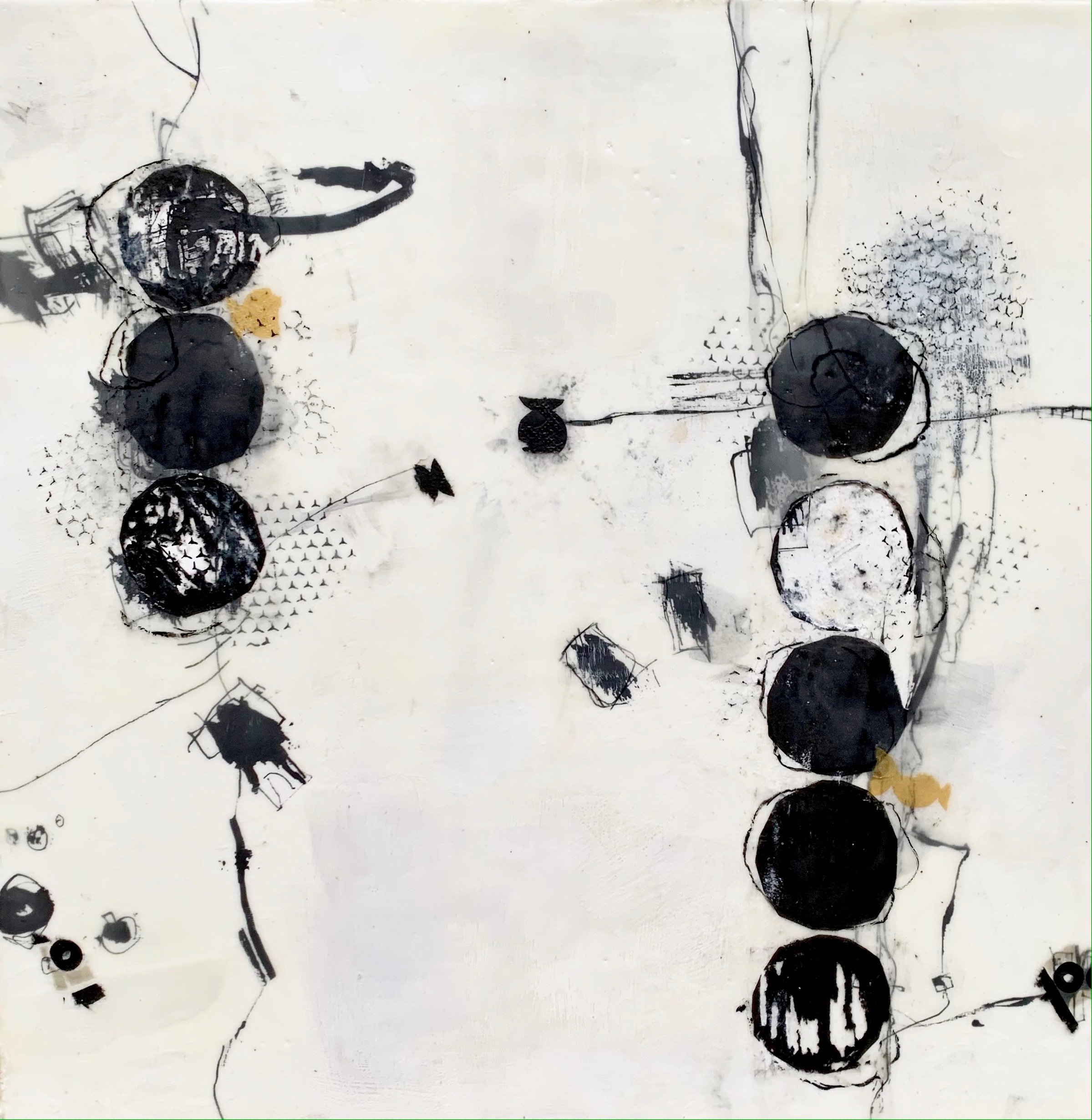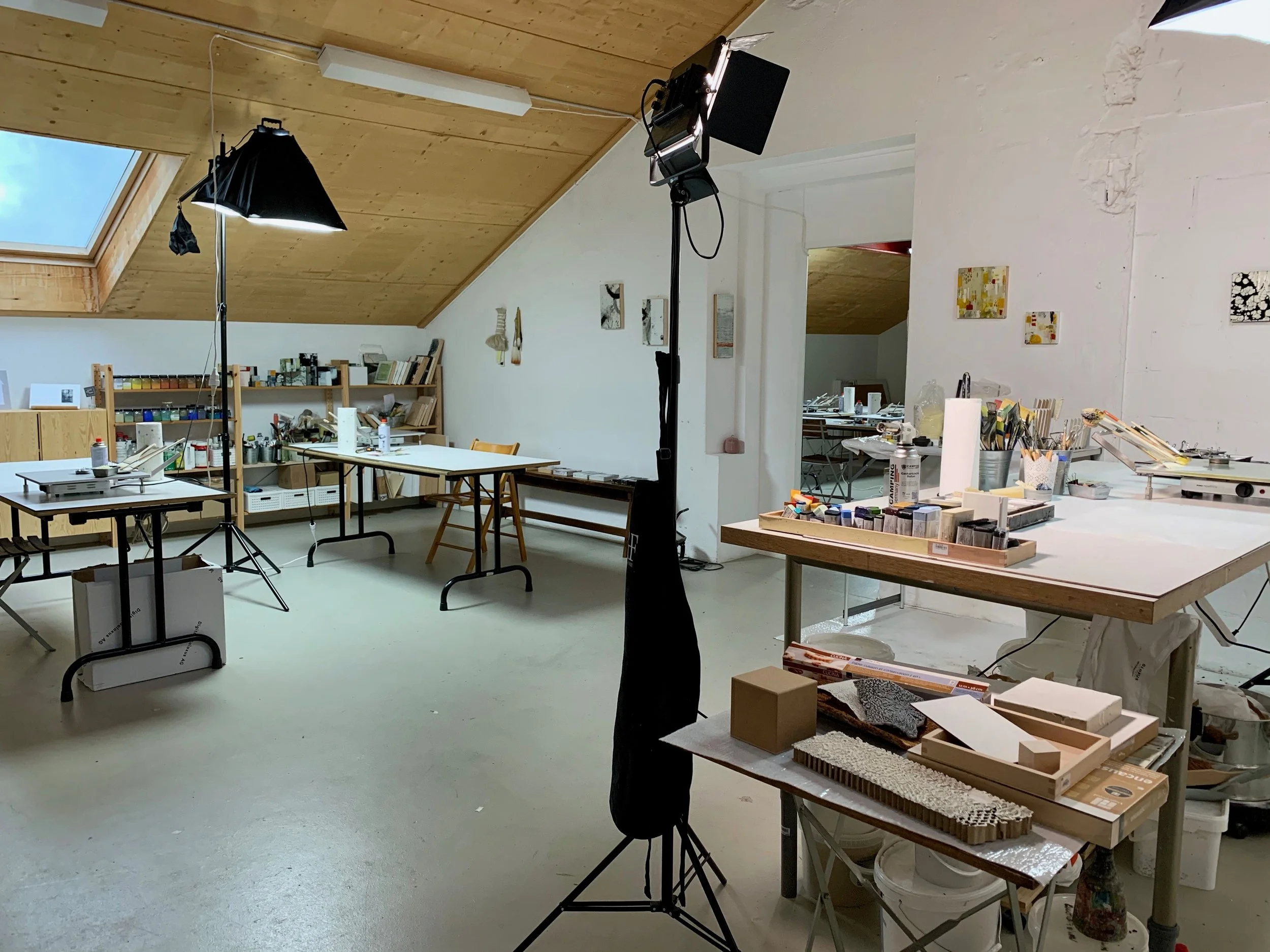International Workshops: Bettina Egli Sennhauser & Kunstfreiraum
Bettina Egli Sennhauser, Kukkaniitty, 2021, encaustic collage on panel, 40 x 40 cm
R&F is fortunate to partner with a number of instructors around the world. Bettina Egli Sennhauser is one of those artists. As part of our ongoing international focus, we are spotlighting her teaching studio Kunstfreiraum in Switzerland.
Please tell us a bit about yourself? What did you do before you taught?
Portrait of Bettina Egli Sennhauser taken by Andrea Antosikova.
I was raised in the German-speaking part of Switzerland and live with my husband and our two cats. My professional life is quite a journey and includes some trial and error. I worked at a hotel and as a tour guide in my early twenties. At 24, I began studying law and served as a practicing corporate lawyer for about 10 years. In 2008, I went independent, recruiting and coaching lawyers.
I have always needed sports; nature; and mindful, creative activity to balance corporate life. I love Ikebana and Shodo (Japanese calligraphy), which I still practice. Since 2008, I deepened my art practice with study at a number of art academies in different countries. For many years now, painting is what I enjoy and practice most.
In 2020, I opened my teaching studio - Kunstfreiraum - near Basel in Switzerland. In 2021, I was accepted by the renowned Swiss Professional Association of Female Visual Artists, founded in 1902, in recognition of my work.
Bettina Egli Sennhauser, Upbeat, 2021, encaustic photo collage on aluminum, 15 x 40 cm. I took the photos in this collage in 2018 at the Zurich airport waiting for my flight to Boston to attend the International Encaustic Conference for the first time.
How long have you been working with encaustic? What ideas are you exploring in your work?
I turned from acrylic paint to working with natural materials early on in my evolution as a painter. My love of experimentation and getting my hands dirty lead me to use materials such as lime putty, marble dust, cement, and plaster. I combined them with self-made casein and oil and wax paints and ended up with Fresco techniques. The works became haptic, and I appreciated the serendipity of the material's natural cracks and structures.
Bettina Egli Sennhauser, Untitled, 2020, encaustic on cradled panel, 15 x 15 cm.
Thanks to a lot of YouTube research, I discovered the American way of working with encaustic in 2016, which is still not widely known in Europe. Unable to find like-minded artists in Europe, I attended the International Encaustic Conference in Provincetown for the first time in 2018 - an eye-opening experience. I was overwhelmed with the versatility of encaustic work and artists and have been hooked ever since.
Upon my return I co-founded the European Encaustic Artist (EEA) Facebook Community. I also served as one of the initiators of the Transatlantic Fusion 21 Project, a collaboration between New England Wax (NEW) and EEA, which will be shown at the International Encaustic Conference in Provincetown this summer.
My approach to my work is mindful and process-oriented. It is about being in the moment and in touch with the painting and myself - letting my inner visions and stories come to life through the process.
When did you begin teaching?
I have been teaching since 2018, coaching individuals with no or little encaustic painting experience to believe in their creativity and, in the best case, jumpstart their art journey. In my studio, I offer two-day encaustic workshops in German and English. (French and Italian are also possible.) In 2022, I will begin teaching at two art academies in Germany.
My students are experienced painters interested in learning a new technique. For me, it is essential to teach them the fundamentals and at the same time encourage them to combine and use them in a playful, unintentional way. Being used to mastering the painting process, these students have high expectations and are surprised by how different the painting process is compared to acrylics for example. I think my best quality is helping them step out of their comfort zones, offering a safe space to experiment, discover what was already in them, and coaching them through this process. I am always amazed how versatile the works created in the workshops turn out.
View of Kunstfreiraum studio in Switzerland.
Describe your studio. What can students expect to find if they come to study with you?
My studio is just outside Basel in Switzerland and, to my knowledge, it is the first fully equipped teaching space for encaustic in the German-speaking part of Europe. As encaustic is barely known in Europe, I felt it essential to create a space for students to experience and experiment with it before investing in needed materials. Any new student can drop in, get started, and find out what it feels like.
Approximately 1,100 square feet, the studio offers 6 - 8 working spaces equipped with aluminum hotplates, brushes, torches, and many other tools needed. R&F has very generously supported my workshops with paint, which is terrific and helps a lot.
Detail shot. Kunstfreiraum studio.
As soon as traveling is more manageable again, I am looking forward to welcoming more international encaustic artists to teach in my studio. Janise Yntema, who lives in Brussels, will offer a workshop titled "From 2D to 3D: Expanding the Narrative of Colour and Form” in April 2022.
Can you share about your instructional videos? Are they available for purchase? What language are they in?
I produced a comprehensive “Encaustic Online Workshop” in German with my husband. The workshop includes five hours of detailed instructions, split into 35 lessons covering materials and where to find them, resources, setting up a working station, safety, basic and advanced painting techniques, and a couple of exercises. In addition, I meet with students every month via Zoom. I discuss work, answer questions, invite guest artists to inspire the group and experts to advise on legal questions, and promote and sell artwork.
Besides the comprehensive course, I offer shorter videos on specific techniques. Currently we are working on an introductory workshop on Cold Wax. All content is in German and range between $30 to $550. A list of new videos is planned for 2022.
Bettina (right) with a student.
If an international student wants to study with you, do you make arrangements to stay somewhere? Are there accommodations nearby?
Yes, absolutely. We are working on a list of recommendations in different price segments. Basel offers a wide choice of accommodations and cultural activities. You will find a lot of inspiration and not a dull moment.
With 200,000 residents, Basel is Switzerland's third-largest city, and I would say the most essential art city presenting 40 museums.
To learn more about Bettina’s online content, visit kurse.kunstfreiraum.ch/s/kunstfreiraum. Interested in visiting Switzerland and taking a workshop? Go to kunstfreiraum.ch/workshops-uebersicht.







